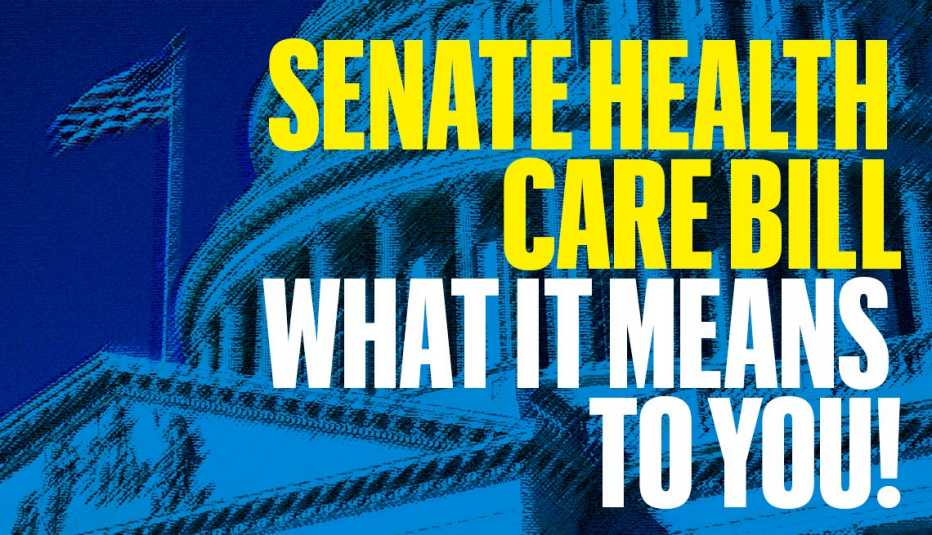AARP Hearing Center


The Senate bill introduced last week to replace the Affordable Care Act (ACA) would dramatically increase the cost of health care for Americans 50 and older.
The Better Care Reconciliation Act (BCRA) would allow insurers to charge older people substantially more than younger ones, and states would have the ability to erase important protections such as essential health benefits.
Among the key provisions in the bill, here are those that would really sting:
You would have to pay more for insurance.
The Senate bill essentially levies what AARP calls an Age Tax, leading to higher premiums for older Americans. The pain is twofold: Seniors could be charged five times as much as younger people for health insurance, and they would receive less in tax credits.
For example, say you are 64 years old and earn $56,800 a year. You don’t have health insurance from your employer and therefore must buy it on the individual market. Under current law, you would pay about $6,800 a year for the so-called silver plan, a standard benchmark plan that covers most health care services people need. Under the Senate proposal, your premium would jump to $20,500. That’s because you would be charged five times as much for the same plan as a younger person, something the current law doesn’t allow. And the tax credit you’ve been receiving under the current law would decrease substantially — or it might go away entirely.
Your insurance might not cover all the services you need to treat your illness.
The Senate bill lets states opt out of mandating that insurance policies cover a set of basic medical services, also known as essential health benefits, that help treat such illnesses as heart disease, diabetes, osteoporosis and cancer. That means you may have to pay out of pocket for the care you need to stay alive. Current law requires all insurance policies to pay for such things as hospital stays, prescription drugs, lab tests and other medical services.




























































More From AARP
8 Ways the Health Care Bill Is Hazardous to Your Health
Bill chips away at popular features